2025 ACM Awards
We’re beyond thrilled to celebrate our incredible MAX artist partners who’ve secured nominations for the 2025 Academy of Country Music Awards—our...
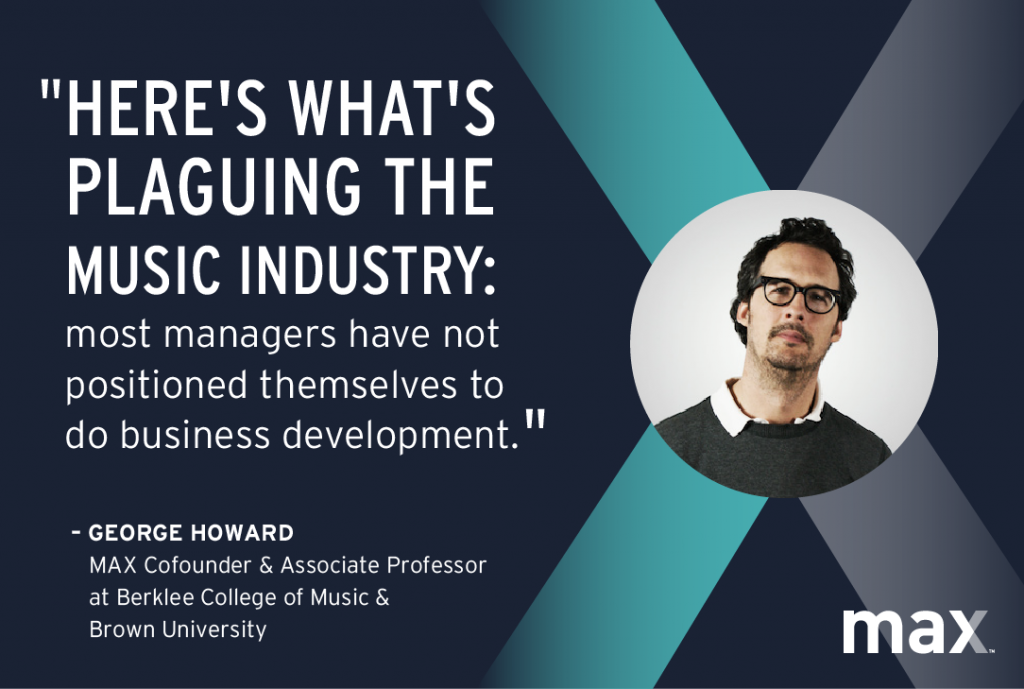
With new technologies constantly disrupting how the music business operates, the role of the artist manager has forever changed. Yet, many current and aspiring managers continue to view this job as it once existed, rather than how it exists today and how it will exist in the future.
Traditionally, artist managers have concerned themselves with helping their artists get record deals, and then – post-deal – they’ve acted as a liaison between the artist and label.
This is, of course, a radical oversimplification. Certainly neither getting an artist a deal nor working with a label is easy. However, for at least the majority of artist managers, until the last decade this was their role.
Getting your artist a record deal is not your job anymore. Instead, your responsibility is twofold:
To reiterate, you should no longer be concerned with getting your artists signed. Rather, you should focus on developing and unlocking value for your artists and shifting the burden of promotion from the artist him or herself to the fans of the artist. In most industries, this is known as “business development.”
Artist managers need to develop brand equity for their artists. Or, in other words, they need to build trust between artists and their audiences. What they do with this trust is critical. Again, instead of turning that brand equity into a record deal, managers should leverage it into direct revenue streams and strategic partnerships that can lead to more revenue streams.
Doing so, additionally will impact the second main role of the manager, increasing the artist’s Net Promoter Score. A Net Promoter Score relates to the number of fans of the artists who are likely to tell their friends about this artist. Artists with high Net Promoter Scores succeed; those with low NPS fail quickly; those with neutral NPS don’t last long.
And here’s what’s plaguing the music industry: most managers have not positioned themselves to do business development. Many have limited proper business training, which can cause issues in a market that punishes those without the requisite skills.
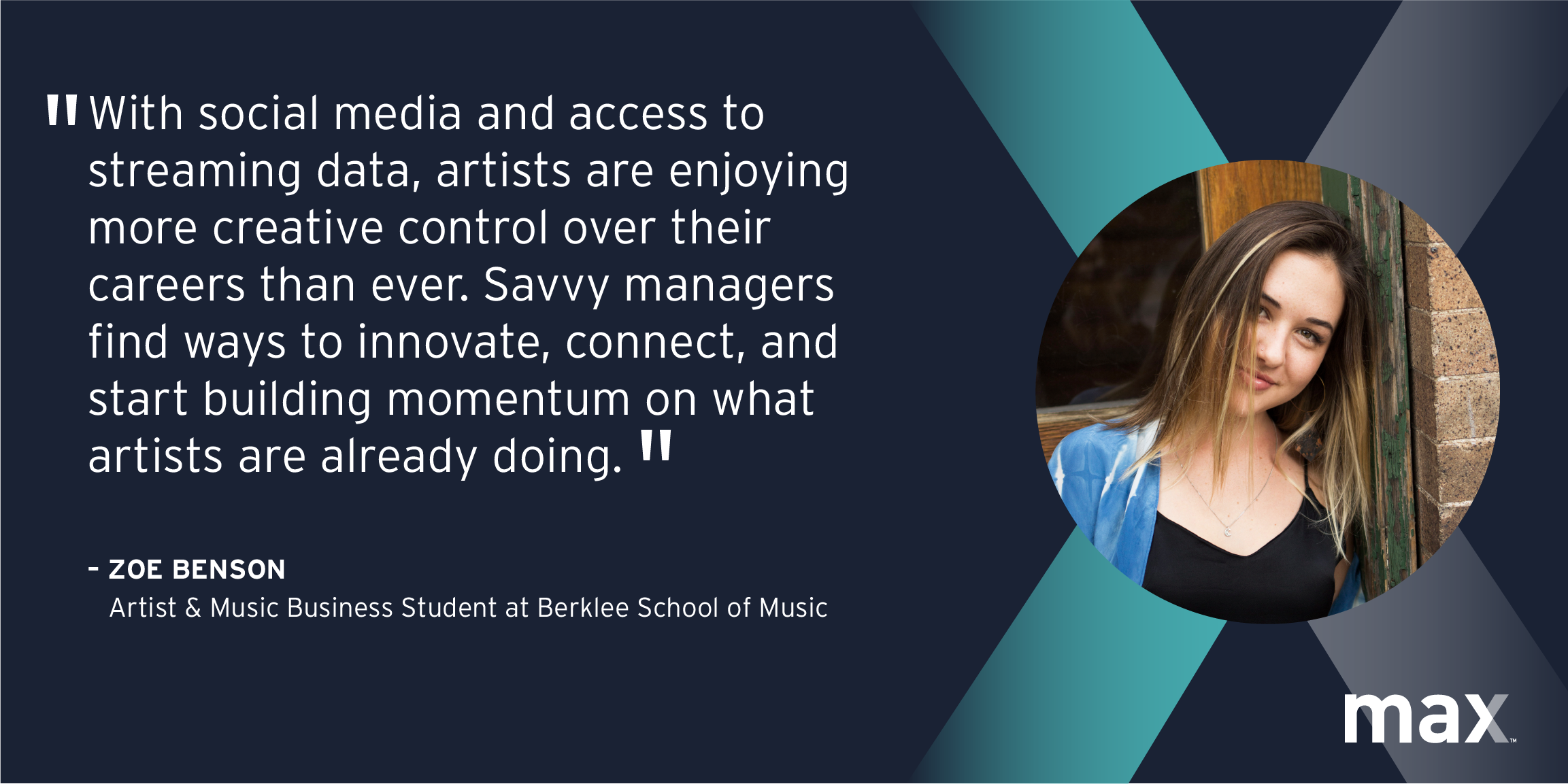
I am interested in the music business because it is becoming my responsibility to create my own revenue. On that note, I agree with what George has said.
Rather than relying on a label, managers can now take responsibility for getting artists directly in front of an audience. It is the manager's job to create a network of support for the artist, and in turn, to make the artist marketable and remarkable. This means partnering with other artists or brands, while always staying true to the fans who buy music and spread the word.
The easiest way for me to understand what George has written about the role of an artist manager is through a “wingman” analogy. As wingman, you monitor the appearance of your friend. You fix their hair and adjust camera angles. You make sure that only the most flattering photos end up on their various profiles. You set them up with your most charismatic and successful friends and talk them up at social gatherings. Once your friend is turning heads, you help turn this popularity into a healthy, lasting relationship. A good wingman would never let their friend settle for less than the perfect partner, and a good manager should think the same way.
With more options and paths to success now, managers no longer have to focus on placing artists in front of record labels. Hours that used to be spent trying to get a record deal can now be hours spent making artists visible and appealing to new and existing audiences. Once this is happening, managers can turn this popularity into strategic partnerships and healthy, lasting revenue streams.
With social media and access to streaming data, artists are enjoying more creative control over their careers than ever. Savvy managers find ways to innovate, connect, and start building momentum on what artists are already doing.
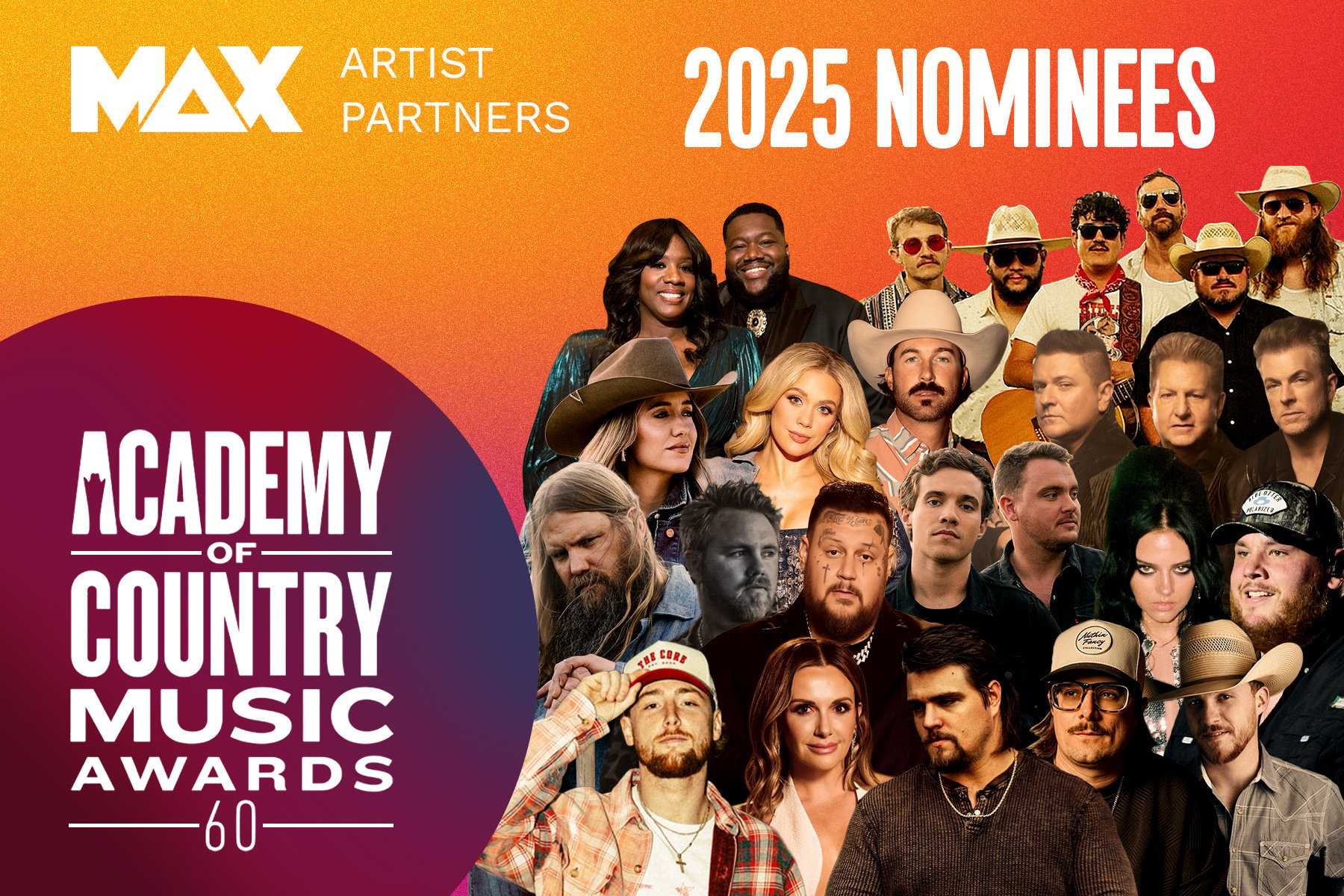
We’re beyond thrilled to celebrate our incredible MAX artist partners who’ve secured nominations for the 2025 Academy of Country Music Awards—our...
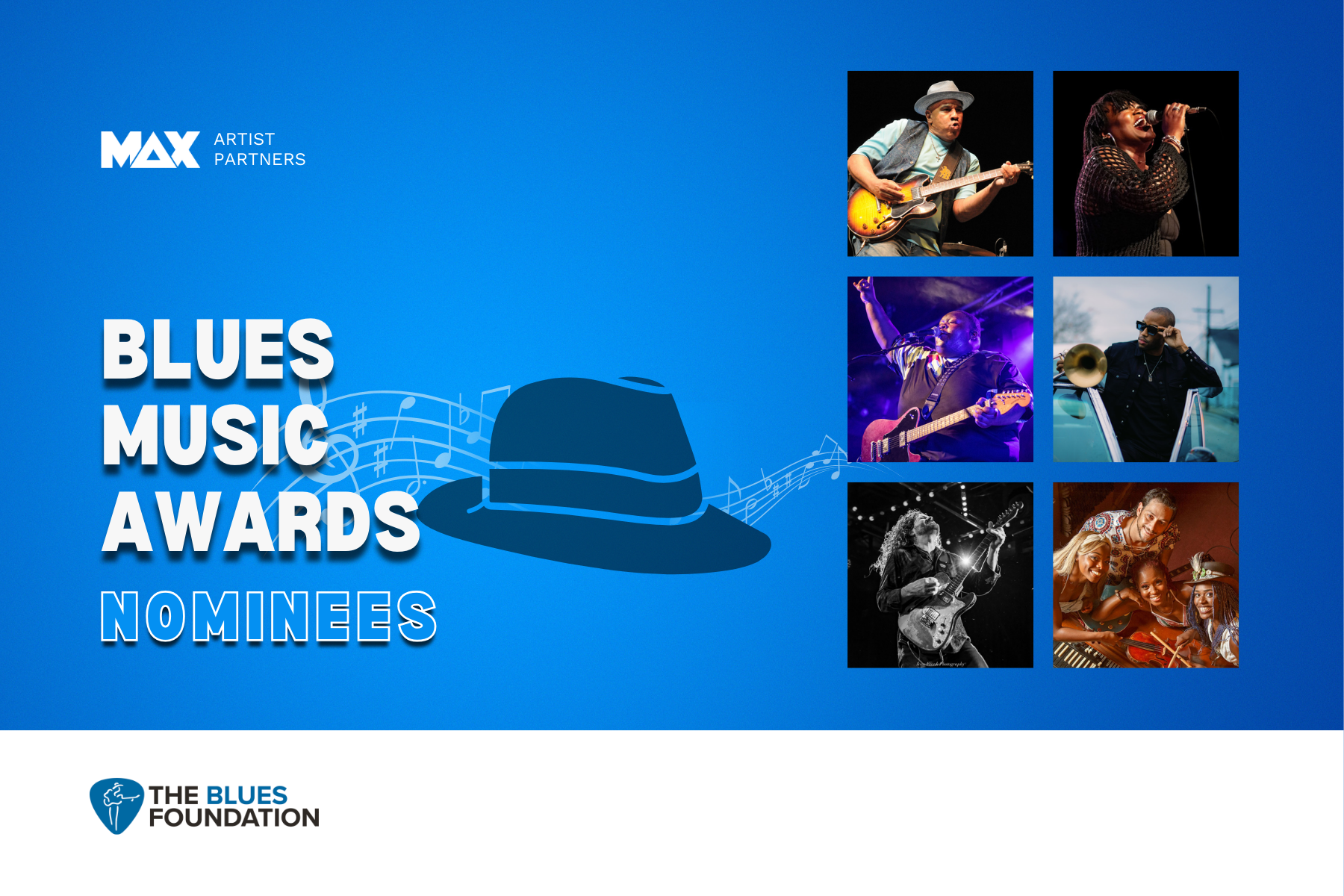
We’re fired up to celebrate our incredible artist partners who are nominated for the 2025 Blues Music Awards! 🎶🏆Blues music may be timeless, but...
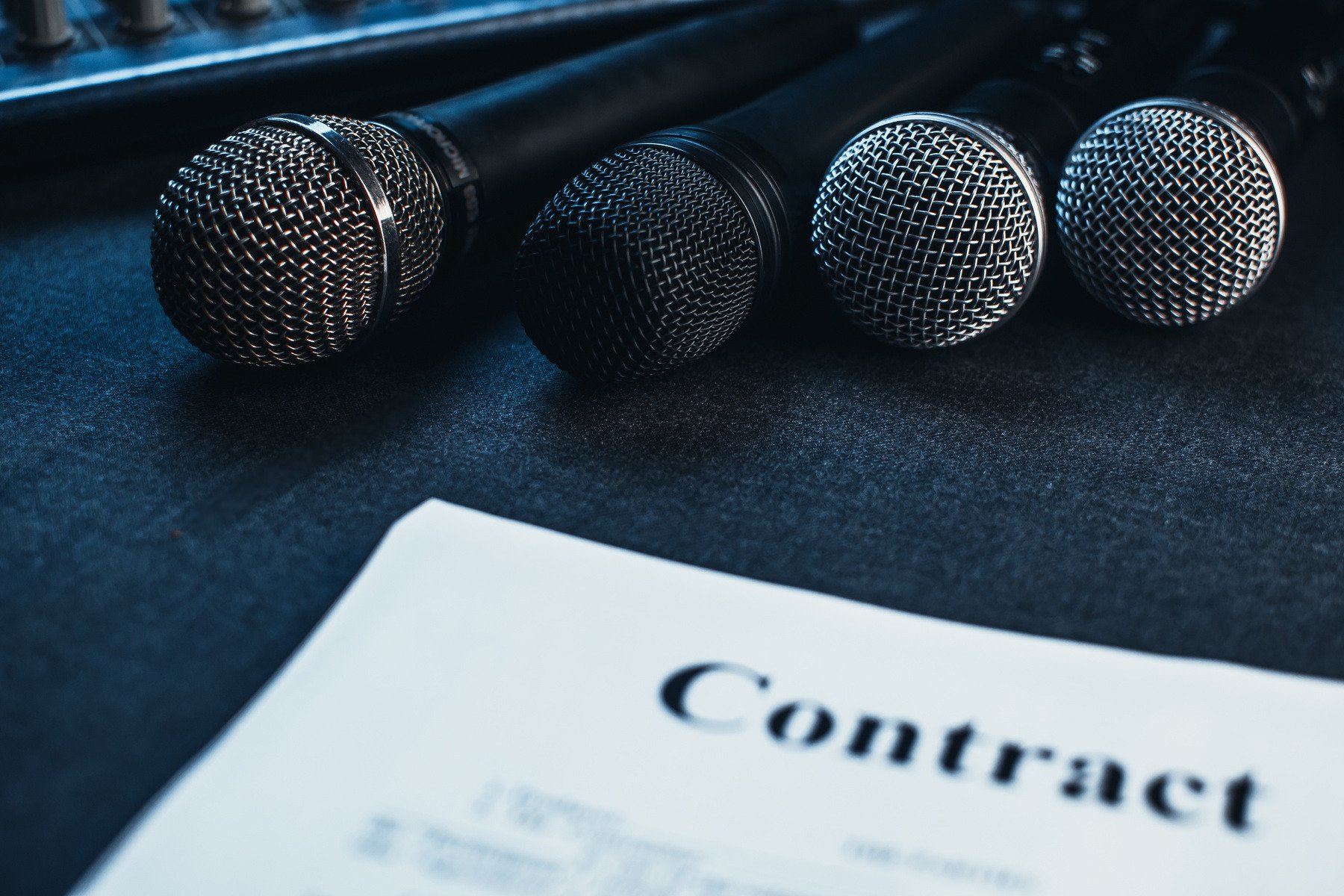
It’s a common question: what drives the cost of an artist partnership up (or down)? I mean, an artist’s fee can range from four to seven figures…and...
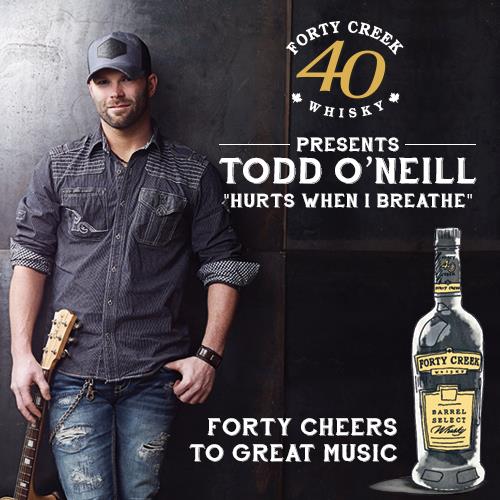
Louisianan country singer Todd O’Neill recently won the inaugural NASH Next contest, a four-month competition to identify America’s newest country...
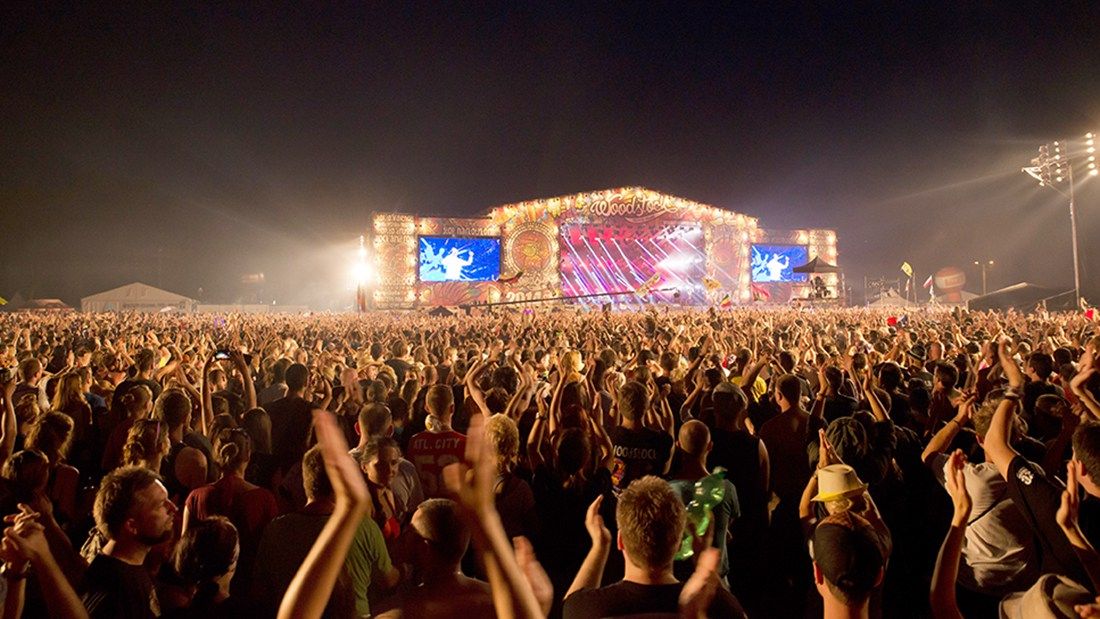
Our good friend and advisor, George Howard, recently penned an article in the New York Times about the rise in music festivals as an economic...
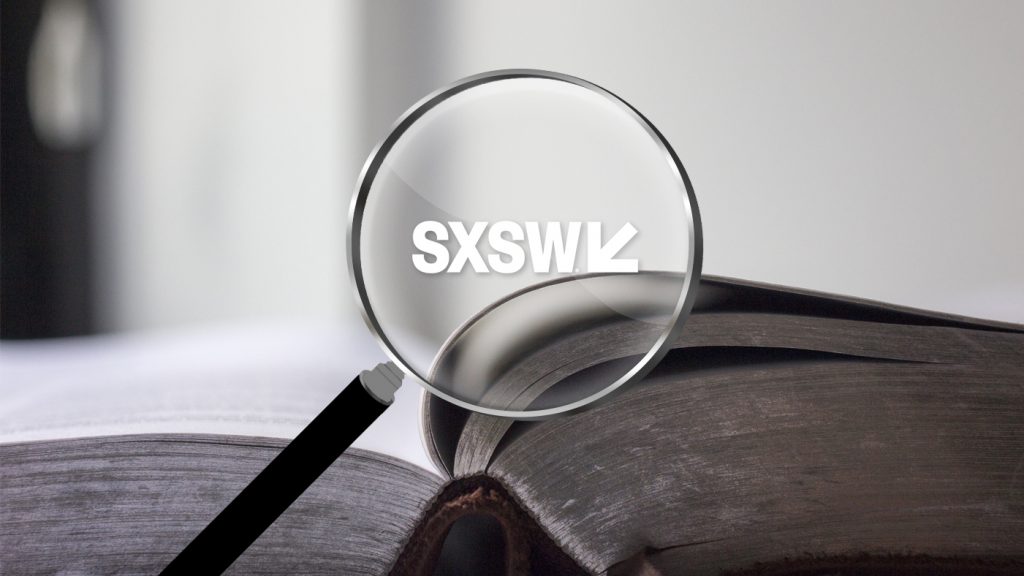
Here in Dallas, it’s sunny outside but sometimes it still feels like we’re living in the shadows. Let me explain.